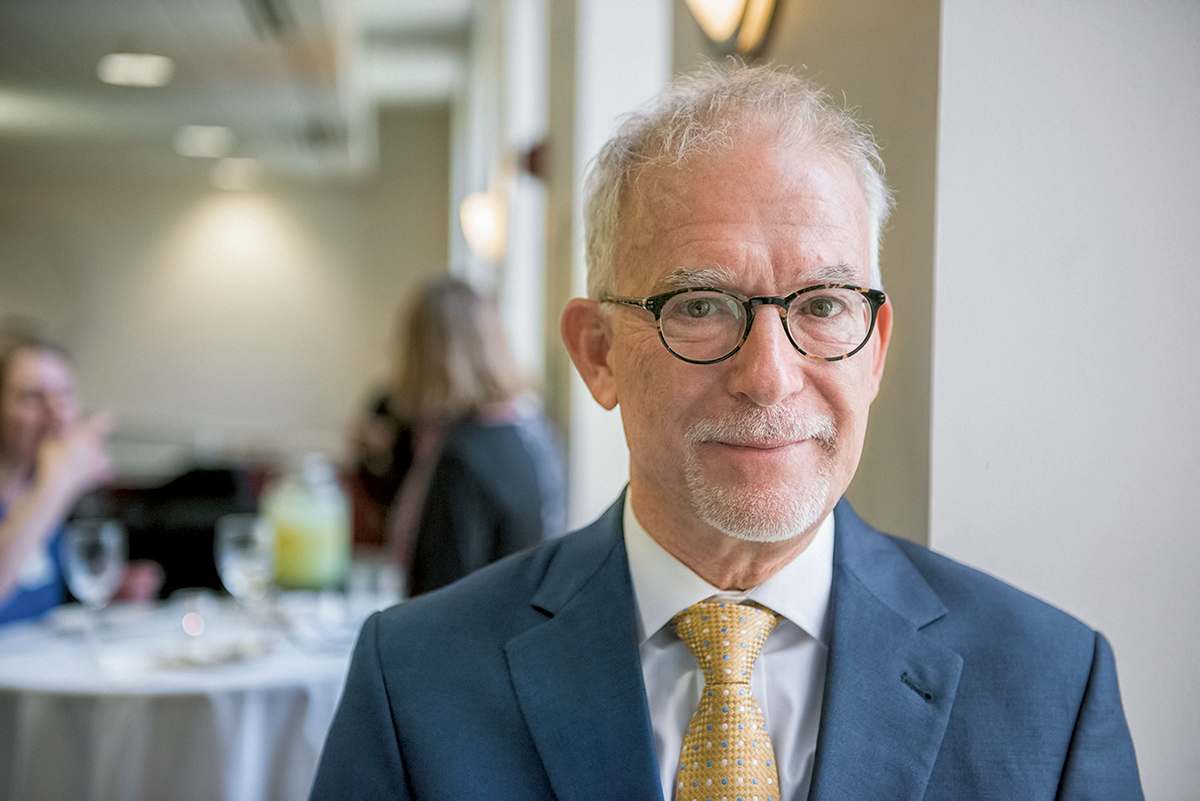The work of Robert Pianta, ’86, can be found in every Head Start program in the country. Pianta is the creator of an observational assessment of teacher–student interactions known as the Classroom Assessment Scoring System™ or CLASS, which captures interactions that contribute to learning and development. Head Start uses it to improve teaching quality in centers nationwide.
Pianta is an energetic educator who has been making a difference in the field of early childhood education and development throughout his career. An alumnus of the school psychology program, he is now the dean of the University of Virginia’s Curry School of Education. There he continues to study teachers’ effectiveness in the classroom primarily through the ways that they interact with children.
“We pay attention to both the social types of engagement and the way teachers promote children’s learning,” he explains. “When teachers are more effective, kids learn more.”
This year Pianta received the high honor of the University of Minnesota’s Outstanding Achievement Award. When he returned to Minnesota to accept it this fall, he made sure to spend time answering questions from graduate students. He also ran the Twin Cities Marathon.
Beginnings in special education
Pianta first took an interest in human development as an undergraduate at the University of Connecticut, where he volunteered with children with disabilities. That led him to a double major in special education and psychology, with a lot of coursework in child development.
Pianta became a special education teacher in a middle school for three years, where he learned a lot about teachers’ interactions and relationships with kids. He knew he wanted his graduate education to combine the type of research with practical application he had read about as an undergraduate.
“Almost everything I read was written by someone at the University of Minnesota,” he remembers. He applied and came to Minnesota, where his advisers were the renowned professors Byron Egeland and Jim Ysseldyke.
“The school psychology program enabled me to combine psychology, education, and human development,” he says. “I couldn’t have landed in a better sandbox.”
Serving more diverse populations
Nominating Pianta for the award, Egeland and Ysseldyke—now professors emeriti in the Institute for Child Development and Department of Educational Psychology respectively—listed his important contributions to help close opportunity gaps for young children, especially those from low-income and poverty settings: Enhancing the relationship between children and teachers. Connecting children, families, and schools. School readiness and transition to kindergarten. Early child care. Supporting dual-language learners in early childhood classrooms.
With so many accomplishments, Pianta is still looking ahead, citing two goals in particular.
“The first is to refine the tools we have and further develop and apply them to more diverse populations,” he says, “as well as understand more about the biological and physiological processes of teachers and children.”
He also wants to examine the tools he and his colleagues have developed at a macro level, seeking insight on the universality of some of the properties of interactions for children’s development.
“There are people using our tools across the world,” Pianta says. “I believe it’s now possible for us to study which factors may account for educational differences among nations.”
Story by Sarah Jergenson | Photo by Jayme Halbritter | Winter 2017
